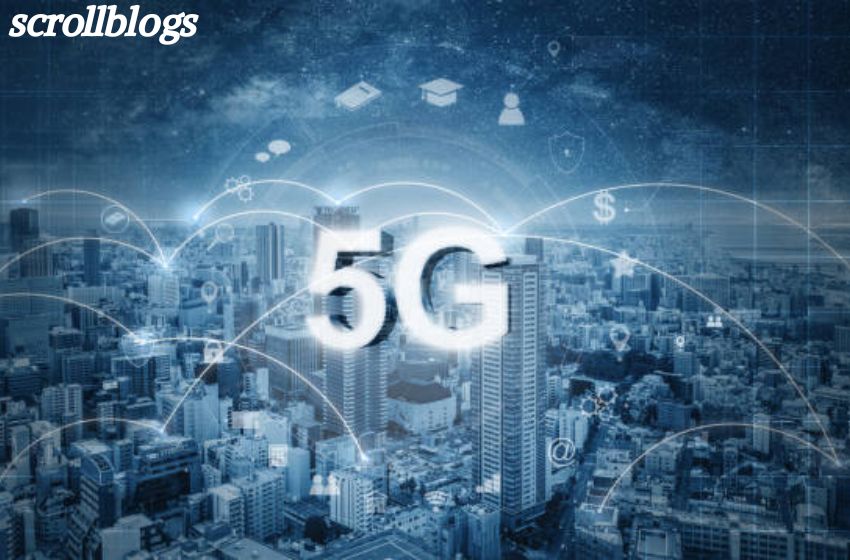In the rapidly evolving digital landscape, the debate surrounding 5G technology is intensifying. Known as “The 5G Standoff Squaringthe Net,” this conflict highlights the clash between technological advancements and societal concerns. In this article, Scroll Blogs will explore the key facets of this standoff, examining its implications for different stakeholders and what lies ahead in this digital age.
Understanding “The 5G Standoff Squaringthe Net”
“The 5G Standoff Squaringthe Net” represents the tension between the promise of 5G technology and the concerns raised by various groups. On one hand, 5G promises faster speeds, lower latency, and the potential to connect billions of devices seamlessly. On the other hand, critics express fears over health risks, privacy concerns, and the deepening digital divide. This standoff is a reflection of the broader debate over technology’s role in society.
The Promise of 5G Technology
5G technology promises to revolutionize the way we communicate, work, and live. It offers speeds up to 100 times faster than 4G, enabling the growth of smart cities, autonomous vehicles, and enhanced virtual reality experiences. Proponents argue that 5G will boost economic growth, create jobs, and enhance innovation. However, “The 5G Standoff Squaringthe Net” also brings to light significant concerns that need to be addressed.
Health and Safety Concerns in “The 5G Standoff Squaringthe Net”
One of the most vocal arguments in “The 5G Standoff Squaringthe Net” revolves around health and safety concerns. Some individuals and groups are worried about the potential health risks associated with increased exposure to radiofrequency radiation. Although scientific studies have not definitively proven these claims, the debate continues to grow, fueled by misinformation and a lack of transparent communication from technology providers.
Privacy and Security Implications
The deployment of 5G also brings with it a new set of privacy and security challenges. With more devices connected to the internet, the risk of cyberattacks and data breaches increases. “The 5G Standoff Squaringthe Net” emphasizes the need for stronger cybersecurity measures and privacy protections to ensure that this technology is deployed safely and responsibly. Companies and governments must work together to establish protocols that protect user data and maintain trust in the digital ecosystem.
The Digital Divide: Who Gets Left Behind?
Another critical aspect of “The 5G Standoff Squaringthe Net” is the widening digital divide. While urban areas may quickly benefit from 5G deployment, rural communities and underserved populations may be left behind. This disparity can exacerbate existing inequalities in access to education, healthcare, and economic opportunities. Addressing this issue is essential to ensuring that the benefits of 5G technology are equitably distributed across all segments of society.
The Global Race for 5G Dominance
“The 5G Standoff Squaringthe Net” is not just a domestic issue; it has global implications. Countries are racing to lead in 5G technology, recognizing its strategic importance for future economic and military dominance. This race has sparked geopolitical tensions, particularly between the United States and China, as both nations vie for control over the standards, infrastructure, and market share of 5G technology. The outcome of this standoff could reshape the global power dynamic.
Environmental Impact and Sustainability
As “The 5G Standoff Squaringthe Net” unfolds, concerns about the environmental impact of 5G deployment have also emerged. The construction of new infrastructure, such as 5G towers, and the energy consumption associated with 5G networks can contribute to carbon emissions and environmental degradation. To mitigate these effects, companies must invest in sustainable practices and technologies that minimize their carbon footprint while advancing 5G capabilities.
Finding Common Ground: A Path Forward
The key to resolving “The 5G Standoff Squaringthe Net” lies in finding common ground between technology developers, policymakers, and the public. Transparent communication, responsible deployment, and addressing valid concerns are essential steps toward building trust and achieving a balanced approach to 5G technology. Scroll Blogs believes that a collaborative effort is needed to ensure that 5G benefits everyone, regardless of location or socioeconomic status.
Conclusion: The Future of “The 5G Standoff Squaringthe Net”
“The 5G Standoff Squaringthe Net” is a multifaceted debate that encompasses health, privacy, security, equity, and sustainability concerns. As we navigate this digital era, it is crucial to balance technological progress with societal needs and values. By doing so, we can ensure that the promise of 5G technology is fulfilled without compromising public trust or well-being.
FAQs About “The 5G Standoff Squaringthe Net”
- What is “The 5G Standoff Squaringthe Net”? “The 5G Standoff Squaringthe Net” refers to the debate surrounding the deployment of 5G technology, focusing on its benefits, risks, and the differing opinions of various stakeholders.
- What are the main concerns in “The 5G Standoff Squaringthe Net”? The main concerns include health risks, privacy and security issues, the digital divide, and the environmental impact of 5G technology.
- How does “The 5G Standoff Squaringthe Net” affect global relations? The standoff has global implications, particularly in the race for 5G dominance between major world powers like the United States and China, which could reshape international relations and economic power.
- Can 5G technology be deployed sustainably? Yes, with the adoption of sustainable practices, such as using energy-efficient infrastructure and reducing carbon emissions, 5G technology can be deployed in an environmentally responsible manner.
- What is the role of policymakers in “The 5G Standoff Squaringthe Net”? Policymakers play a crucial role in ensuring the safe and equitable deployment of 5G technology by setting regulations, addressing public concerns, and fostering collaboration among stakeholders.

